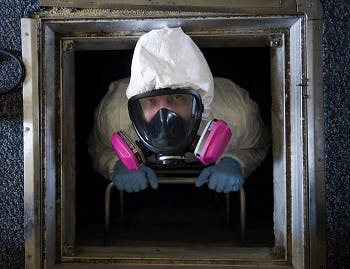Rodent Droppings Are A Sign
Rodents Poop A Lot-The Role of Rodent Feces in Disease Transmission
Rodent Feces Can Contain A Variety Of Harmful Pathogens-Read now
The Role of Rodent Feces in Disease Transmission
Rodent Feces Can Contain A Variety Of Harmful Pathogens that can be transmitted to humans through contact or inhalation. Learn about the diseases that can be spread by rodent feces and how to protect yourself. Read now
If you see droppings, and holes or hear scratching and clawing in walls you could have a rodent problem.
Rat In Pasadena Ca, even with little rains brings vegetation growth, providing breeding areas and additional food sources. Young rats and mice wander and seek food and new homes
Poop Hazard
When a number of droppings that contain hantavirus become airborne when Hantavires is active will produce the Disease HantavirusPulmonary Syndrome (HPS)
 How Does One Get HantaVirus
How Does One Get HantaVirus
Here are some activities that can put people at risk for HPS:
• Improperly cleaning up mouse and rat urine, droppings, and nests.
• Cleaning a shed or cabin that has been closed for some time.
Fever, fatigue, and muscle aches are the first symptoms of HPS
• Working in areas where mice and rats may live (such as barns, garages, attics, and basements).
In the United States, there has never been a case in which a person with HPS has given the disease to
another person
Rodents, such as rats and mice, are common pests that can be found in homes, businesses, and outdoor areas. While these creatures may seem harmless, they can pose a serious health risk to humans through the transmission of diseases via their feces.
Rodent feces can contain a variety of harmful pathogens, including bacteria, viruses, and parasites. These pathogens can be transmitted to humans through contact or inhalation, leading to a range of illnesses and infections. Some of the most common diseases associated with rodent feces include:
- Leptospirosis: This bacterial disease can be transmitted to humans through contact with water or soil that has been contaminated with rodent urine. Symptoms of leptospirosis include fever, headache, muscle pain, and jaundice.
- Hantavirus: This virus can be transmitted to humans through inhalation of dust or particles that have been contaminated with rodent feces or urine. Symptoms of hantavirus include fever, muscle aches, and fatigue.
- Salmonella: This bacterial infection can be transmitted to humans through contact with rodent feces or urine. Symptoms of salmonella include fever, diarrhea, and abdominal cramps.
- Rat-bite fever: This bacterial infection can be transmitted to humans through bites or scratches from infected rodents, or through the consumption of food that has been contaminated with rodent feces. Symptoms of rat-bite fever include fever, rash, and joint pain.
It is important to note that these diseases can be serious and in some cases can lead to severe illness or death. It is essential to take preventative measures to protect yourself and your family from these potential health hazards.
To protect yourself from the diseases transmitted by rodent feces, it is important to practice good hygiene and sanitation. This includes regularly cleaning and disinfecting areas where rodents may be present, using gloves and masks when cleaning up feces, and avoiding direct contact with rodents and their droppings. Additionally, it is important to keep food and waste properly stored and sealed to prevent rodent infestations.
Furthermore, it is important to contact professional exterminators if you suspect a rodent infestation in your home or business. They can provide effective solutions to eliminate the pests and their feces and prevent future infestations.
In conclusion, rodent feces can pose a serious health risk to humans through the transmission of diseases. It is essential to take preventative measures to protect yourself and your family from these potential hazards. By practicing good hygiene and sanitation, avoiding direct contact with rodents and their droppings, and contacting professional exterminators if necessary, you can reduce the risk of disease transmission and keep yourself and your loved ones safe.
We Care About Your Safety